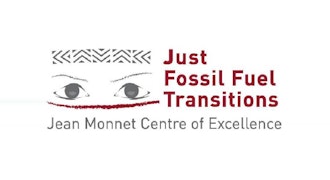Session
Intersecting the Multiple Scales of Climate Justice: Mapping Inclusive Adaptation and Just Fossil Fuel Transitions
Track 4 - Special Session
Climate justice foregrounds the political and the social dimensions of the climate crisis. It asks who is responsible, who is most affected, and who decides “where” and “how” to mitigate and to adapt to climate change. Across intertwined geographical and policy scales - from the political geography of the fossil fuel to the localized impacts of a heatwave on a single neighbourhood - the spatial distribution of the responsibility for GHG emissions, climate vulnerability, and proposed solutions calls upon an intersectional climate justice framework, capable to ensure more equitable and distributive mitigation and adaptation policies. Historically, fossil fuel exploitation, particularly in the Global South, developed in different “zones of sacrifice” of the Planet, seriously affecting territories of local communities (indigenous and mestizo population, and farmers) as well as fragile ecosystems within highly sensitive biodiversity areas. To implement just transition pathways, it is essential also to adopt restorative and reparative justice approaches; these include infrastructure replacement, compensation mechanisms, community-centred renewable energy systems, community-based and ecosystem-based adaptation strategies and the creation of alternative and sustainable economic opportunities, thereby enabling equitable and sustainable fossil fuel phase-out processes.
On the other hand, the increasing frequency and magnitude of extreme events (droughts, heatwaves, intense precipitation) might amplify existing socio-economic and cultural inequalities worldwide. These climate extremes typically have greater impacts in urbanized areas, which currently host more than 50% of the global population. Despite this, urban adaptation policies generally overlook the unequal spatial distribution of both climate impacts and adaptation measures. This oversight can directly or indirectly exacerbate the vulnerabilities of disadvantaged and low-income populations (migrants, elderly, children, women), reinforcing existing inequalities by creating injustice and unfair interventions. Furthermore, many urban adaptation plans may trigger gentrification and displacement.
Inter- and multi-disciplinary approaches from geography and GIScience provide a holistic framework for analysing the socio-environmental impacts of climate change as well climate policies. By integrating qualitative and quantitative methodologies, these approaches enable territorial analyses and simulations of inclusive adaptation and mitigation scenarios, facilitate decision-making processes and conflict negotiations among diverse territorial actors.
This special session collects study cases, perspectives, challenges, and critical reflections on “just transitions” and “just adaptation,” aiming to stimulate debate and promote the recognition and integration of climate justice into climate policies across different governance scales. Particular attention will be given to case studies that analyse these phenomena through the critical lens of geography, using geospatial technologies and cartography (GIS, WebGIS, GeoApp), participatory approaches and empowerment processes.
Co-organized with the Centre of Excellence Jean Monnet on Just Fossil Fuel Transition (JFFT) and MSCA RESTART | Urban climate justice and community participation: towards inclusive adaptation strategies.
Presentations:
127 Cipriano Piergiorgio, Citizen Science Ferrara: community-based environmental monitoring for co-design mitigation actions and improve climate justice
131 Codato Daniele, Towards an Arctic Atlas of Unburnable Carbon: Mapping Oil and Gas Extraction, Biodiversity and Indigenous Lands through a climate justice lens
133 Facchinelli Francesco, Climate justice in warming cities: mapping ten years of climate extremes and their potential impacts in Padua (Italy)
153 Pappalardo Salvatore, Equitable urban climate action through microclimatic simulations: a case study from Padua (Italy)
156 Crescini Edoardo, Democratizing Science for Urban Climate Justice: the SCIFT experience in Bologna
218 Escorcia Hernandez Jhon Ricardo, Spatial Disaggregation of Urban GHG Emissions: Empirical analysis based on an expanded Kaya Identity
224 Giardullo Paolo, Data from the Margins: Intersectional Climate Justice and the Role of Personal Narrative
233 Mattia Thomas Simon, Circumnavigating Efficiency: Harnessing GIScience to unveil the Hidden Emissions from the Deliberate Drifting of LNG Carriers

